Dissensus over liberal democracy – a lesson from European judges and civil society.
Insights from the conference "Dissensus on Liberal Democracy: Insights from European Judges and Civil Society".
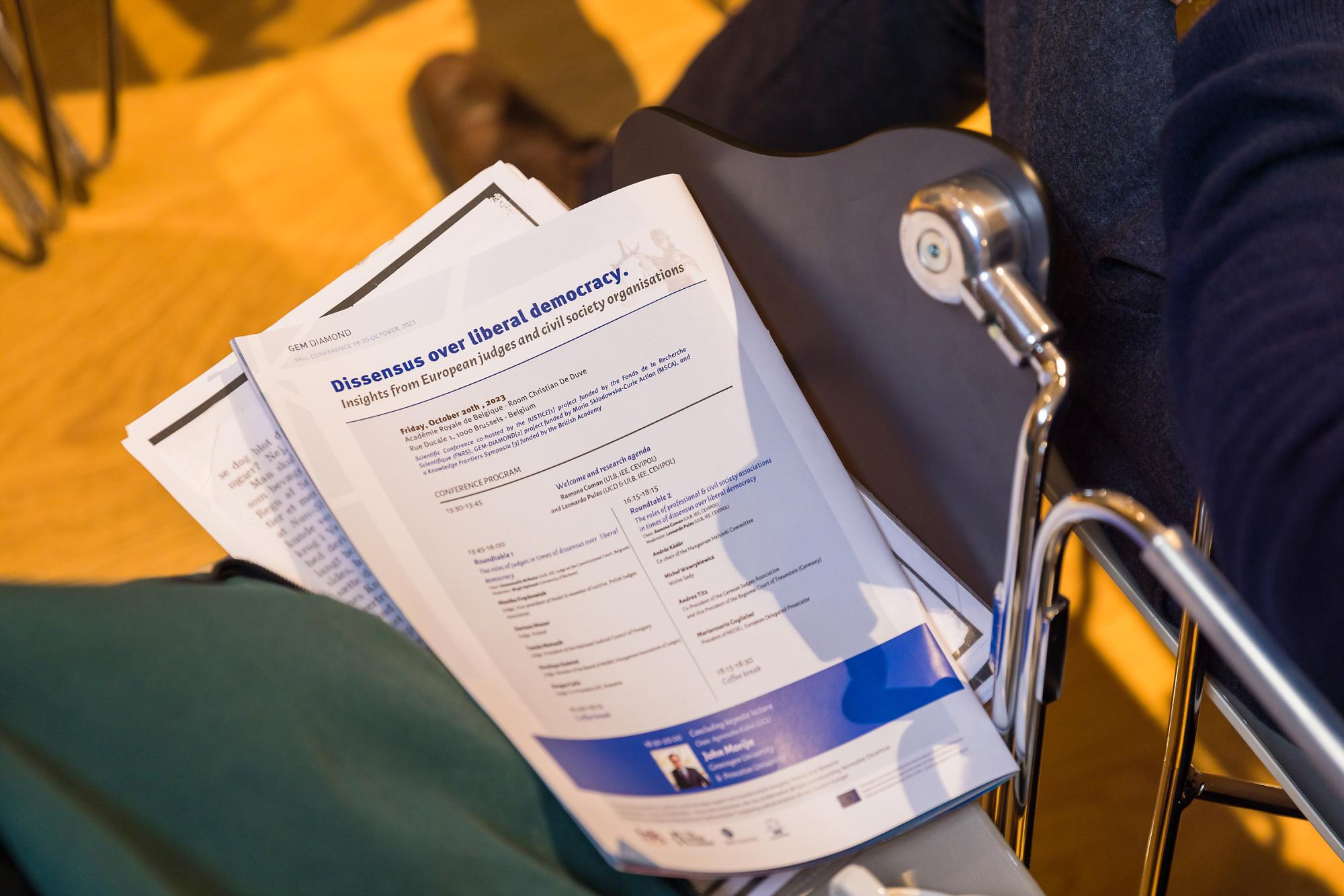

A. Kubal, & R. Coman
‘Imagine the newly elected government of one member state takes control of the executive and legislative, gradually puts pressure on the domestic judiciary to further cancel checks and balances and announces that it will not follow judgments of international and supranational judges.’[1]
On Friday 20th of October, in the field of the two-day GEM Diamond activity, we had the opportunity to attend an extremely useful, topical, and enlightening conference: "Dissensus on Liberal Democracy: Insights from European Judges and Civil Society". This conference was organized by Prof. Ramona Coman and Leonardo Puleo, Ph.D., and it was related to the conclusion of a research project on Judges and Dissensus.
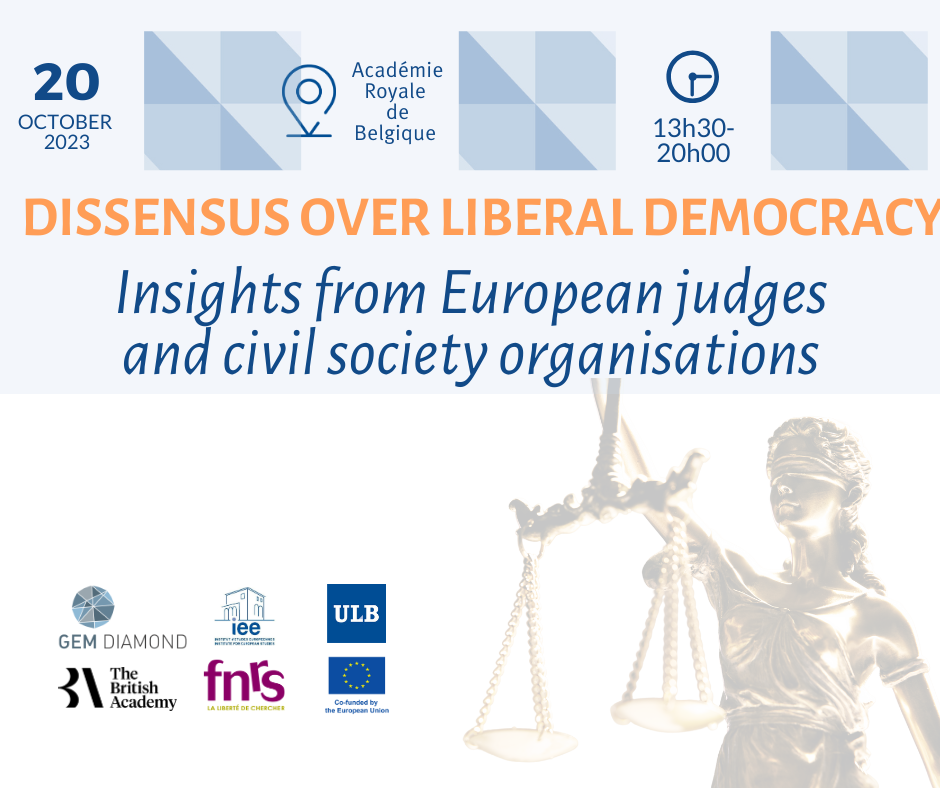 The sentence that introduces this article is part of the keynote speech given by Prof. John Morijn at the end of the conference. I decided to start this article by this experiment because it very much explains how everyone should feel at the beginning of a discussion about the role of judges in the EU rule of law’s backsliding.
The sentence that introduces this article is part of the keynote speech given by Prof. John Morijn at the end of the conference. I decided to start this article by this experiment because it very much explains how everyone should feel at the beginning of a discussion about the role of judges in the EU rule of law’s backsliding.
Indeed, we all (EU nerds) know about the justice backsliding that Poland has been facing for the last (almost) ten years: the third power is endangered by a government polity against the principles of the rule of law. Nevertheless, even if Poland has been acknowledged as the most evident and clear problem, it is not an isolated case.
The roles of judges in times of dissensus over liberal democracy
 The first panel: ‘The roles of judges in times of dissensus over liberal democracy’ hosted judges from Poland, Hungary, and Romania to explain the situation in these countries. The main questions they answered were (1) What are the implications of the growing dissensus over liberal democracy for judges and citizens alike? (2) What roles should judges play when democracy is under strain? (3) How do judges experience dissensus over liberal democracy in your work/area of activity? (4) How are the reactions from judges/judges associations from other countries to dissensus over liberal democracy perceived? What role does transnational exchange or contact with judges from other European countries play in your profession?
The first panel: ‘The roles of judges in times of dissensus over liberal democracy’ hosted judges from Poland, Hungary, and Romania to explain the situation in these countries. The main questions they answered were (1) What are the implications of the growing dissensus over liberal democracy for judges and citizens alike? (2) What roles should judges play when democracy is under strain? (3) How do judges experience dissensus over liberal democracy in your work/area of activity? (4) How are the reactions from judges/judges associations from other countries to dissensus over liberal democracy perceived? What role does transnational exchange or contact with judges from other European countries play in your profession?
All the panelists told us their experiences and I can summarize their answers as follows: first, they are all extremely brave. Being a judge and having the courage to say no to the law is really an incredible step in my opinion. Secondly, bonding with judges from other countries is essential. The possibility of Polish judges being supported by Italian, Spanish, and French judges was a push to go on in this fair fight. Thirdly, we can talk about dissensus from two perspectives: the ‘bad’ dissensus, the one utilized by Hungary, and Poland to contrast the EU’s integration and the EU’s primacy. However, there is also the ‘good’ dissensus used by judges to contrast the choices of their governments endangering the rule of law. On this, I must admit I had goose-bump when the Polish judges were discussing their four days of protests after the winning of the Polish opposition. Also, their protest contributed to the defeat of the previous government.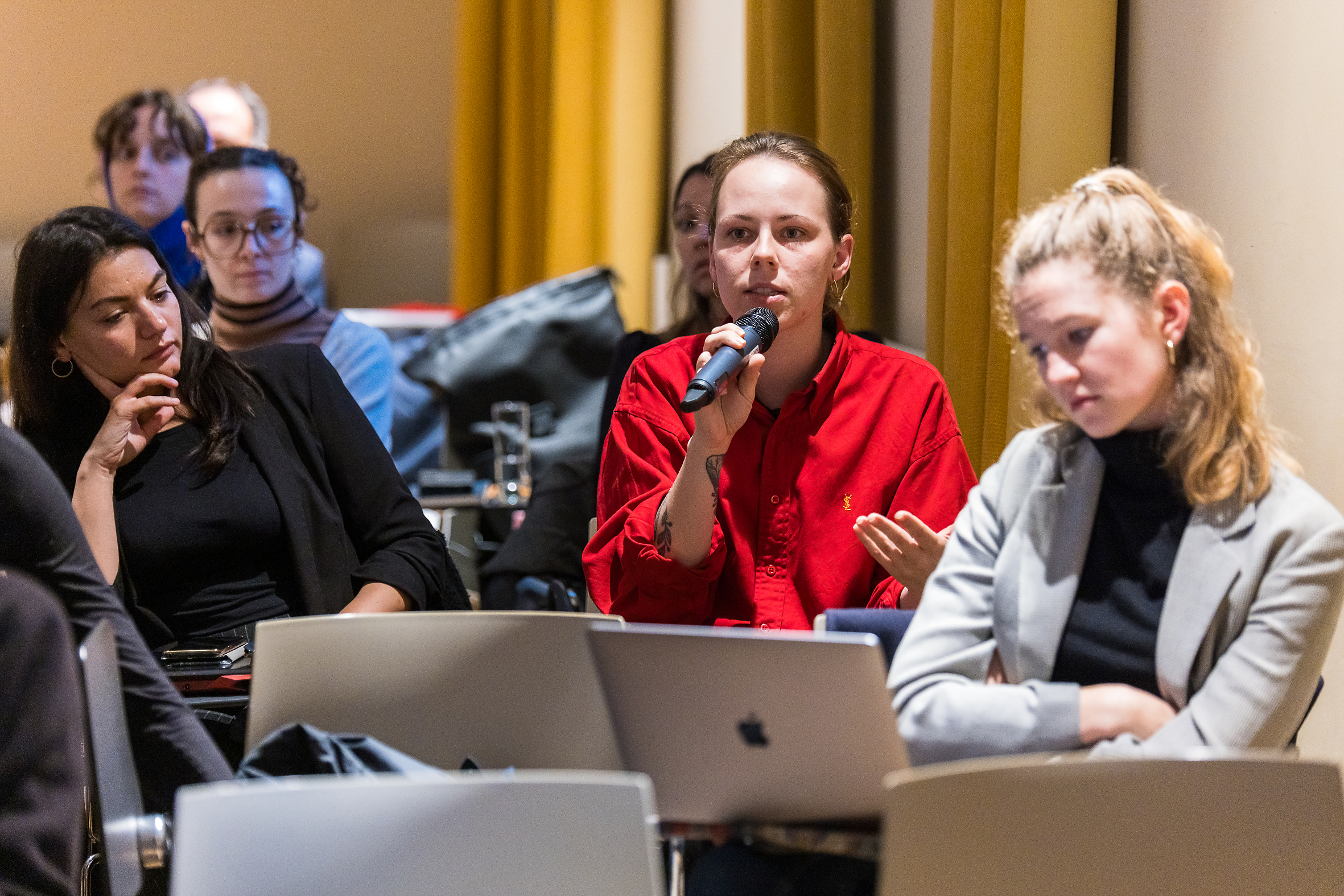
In this regard, one must conclude that these judges reacted to the bad law, and this is, as Prof. Morijn said, not judicial activism or political opposition, but it is judges being true magistrates. Defending the rule of law.
The roles of professional and civil society associations in times of dissensus over liberal democracy.
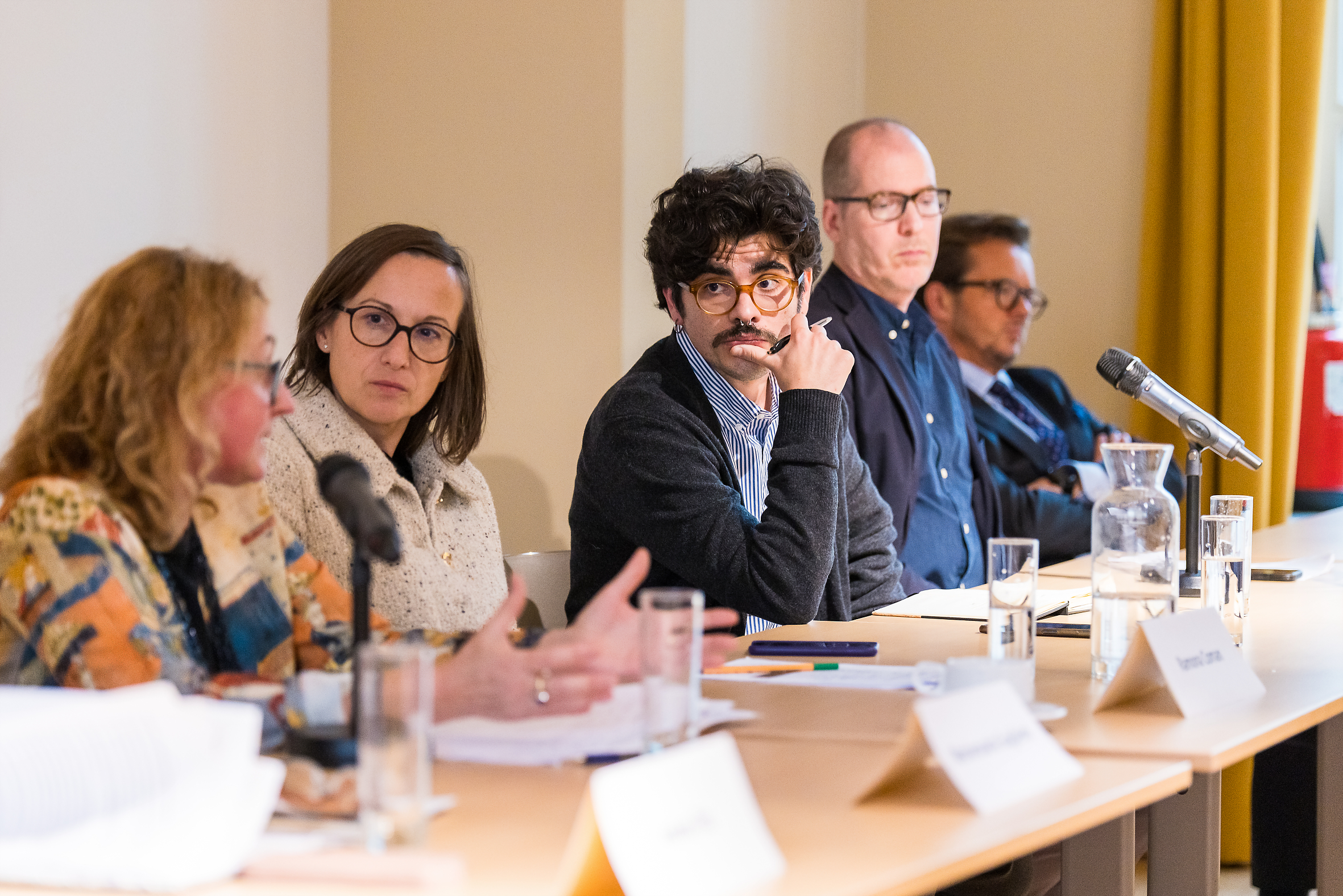 The judges explained the essential role of creating bonds and networking with other realities. That is why the second panel was fundamental to complete the discussion on dissensus. In this context, representatives of NGOs of legal professionals were invited to discuss the following questions. (1) What are the implications of the growing dissensus over liberal democracy for civil society organizations? (2) How can civil society organizations use courts to safeguard rights and values? (3) How do judges experience dissensus over liberal democracy in your work/area of activity? The representatives of the Hungarian Helsinki Committee, Wolen Said, German Judges Association, and Medel, Magistrats Européens pour la Démocratie et les Libertés.
The judges explained the essential role of creating bonds and networking with other realities. That is why the second panel was fundamental to complete the discussion on dissensus. In this context, representatives of NGOs of legal professionals were invited to discuss the following questions. (1) What are the implications of the growing dissensus over liberal democracy for civil society organizations? (2) How can civil society organizations use courts to safeguard rights and values? (3) How do judges experience dissensus over liberal democracy in your work/area of activity? The representatives of the Hungarian Helsinki Committee, Wolen Said, German Judges Association, and Medel, Magistrats Européens pour la Démocratie et les Libertés.
This discussion was more focused on the role of the civil society, on the role of acting outside the tribunal. They arose that the judges are not against impartiality when they decide to go against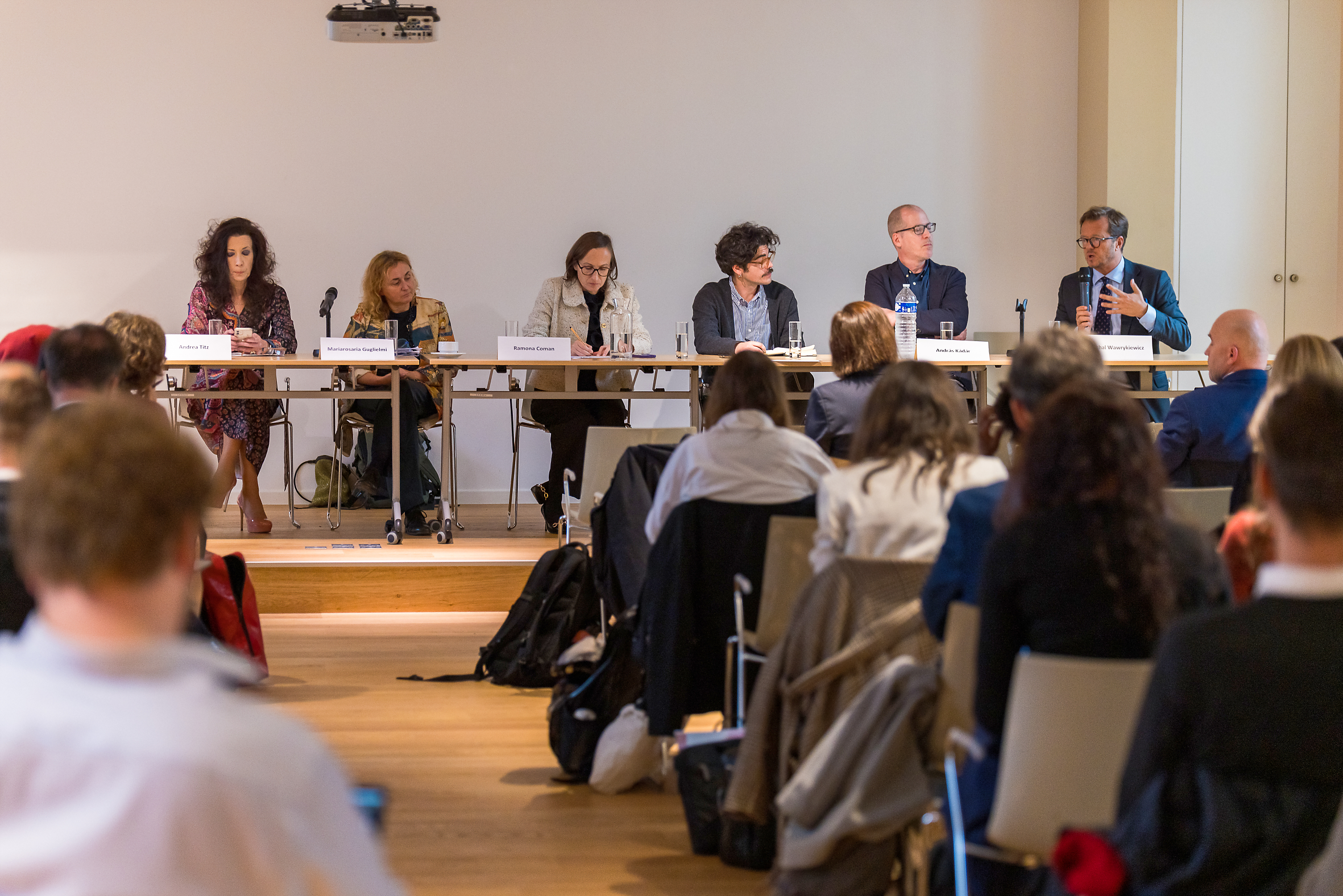 the rule of law. Secondly, it was very insightful to discuss how the first step to put justice in danger is through delegitimization. There is the idea that as soon as a judge is against the government, the choice is a political choice. This can be fought through a solid institutional framework because this already affirms the independence of judges and how they should act to be independent. There is no need for the executive to put pressure to control their activity. In addition, civil society and NGOs can play a fundamental role in explaining to the public that judges must be defended because "Justice” is an independent power.
the rule of law. Secondly, it was very insightful to discuss how the first step to put justice in danger is through delegitimization. There is the idea that as soon as a judge is against the government, the choice is a political choice. This can be fought through a solid institutional framework because this already affirms the independence of judges and how they should act to be independent. There is no need for the executive to put pressure to control their activity. In addition, civil society and NGOs can play a fundamental role in explaining to the public that judges must be defended because "Justice” is an independent power.
The keynote speech: the central role of judges.
 I won't delve into the detailed explanation of Prof. Morijn's concluding remarks, as you can find the comprehensive content in footnote 1. I strongly recommend reading his remarks for their clarity and precision in summarizing the conference's themes. However, I would like to emphasize three key points he made.
I won't delve into the detailed explanation of Prof. Morijn's concluding remarks, as you can find the comprehensive content in footnote 1. I strongly recommend reading his remarks for their clarity and precision in summarizing the conference's themes. However, I would like to emphasize three key points he made.
First, he stressed the vital role of judges in responding to threats against the principles of fair laws. Second, he highlighted the importance of solidarity in addressing these challenges. Additionally, he elaborated on the dynamics of dealing with dissensus over liberal democracy, delineating four formal axes of interaction: (a) top-bottom, from the CJEU to the Member States, for example, the case: Commission v. a Member State. (b)Bottom-bottom: domestic judges are in touch with each other. (c) Top-top: the interaction that the CJEU has with Strasbourg in cases related to judicial independence. Finally, (d)bottom-top. The axis bottom-top has a double character and significance. This is related to the relationship between the judges and the Court of Justice.
In conclusion, Prof. Morijn underlined the judiciary's unique position as the primary state power actively addressing the implications of dissensus over liberal democracy, even when left exposed by its trial partners. European judges take on this role with determination, strategic thinking, and in a spirit of pan-European solidarity. Finally, most importantly, they do so as a potent judicial force, true to the oaths they have sworn to uphold.
[1]European judges, civil society organisations and dissensus: solidarities, strategies, and silver linings https://gem-diamond.eu/blog/european-judges-civil-society-organisations-and-dissensus-solidarities-strategies-and-silver-linings
